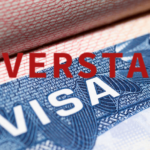-
General Principles of Self Deport in Turkey
Self deport in Turkey is an administrative response to a civil violation when a foreign national has stayed in Turkey without specified/expired documents such as a residence permit, work permit, visa, or visa exemption. If the foreigner does not self deport from the country after this period expires, a deportation decision may be issued. However, as a lighter measure, an “invitation to leave” may be applied when possible. According to the law, those subject to a deportation decision may be granted a period of no less than 15 days and no more than 30 days to self deport from Turkey, as specified in the decision.
-
Cases Where an Invitation to Self Deport Cannot Be Applied
It cannot be said that an “invitation to self deport” decision will always be issued for every foreigner. The following foreigners are not eligible for an invitation to self deport:
– Those with a risk of absconding or disappearing,
– Those who violate legal entry rules,
– Those who use fake or fraudulent documents to obtain a residence permit,
– Those who have obtained a residence permit using fake or fraudulent documents,
– Those who pose a threat to public order or public security.
If the foreigner is a member, leader, or supporter of a terrorist organization or a profit-driven criminal organization, or if they pose a threat to public order, public security, or public health, an invitation to self deport cannot be issued.
-
Address of the Foreigner Invited to Self Deport in Turkey
One of the requirements for foreigners to obtain a residence/work permit is to provide an address registered in the Address Registration System (Mernis) suitable for official notifications, which must be the actual address where they reside. If it is determined that the foreigner does not reside at the declared address, they may be considered at risk of absconding or disappearing. In all cases, the accuracy of the declared address and the truthfulness of statements are crucial. Otherwise, it may lead to deportation. Please review our article about deportation for more detailed information on deportation reasons.
-
Entry Procedure to the Country and Exceptions
To enter the country, a foreigner must possess a valid passport, have a visa or valid visa exemption, and enter through authorized border crossings/airports. If a foreigner does not meet any of these criteria, they will be considered in violation of entry rules. However, exceptions apply if the foreigner seeks international protection or is under a temporary protection regime, in which case entry may be permitted even through unauthorized border points due to urgency. In such cases, individual/collective entries through non-border points are exceptions.
If the foreigner does not self deport from the country within the granted period and does not have an acceptable justification, the governorate will issue an administrative detention order. The purpose of granting time is for the foreigner to self deport from the country. The foreigner must present a justification demonstrating an urgent need to stay, such as a child’s cancer treatment being unavailable in their home country. In such cases, the conditions for a “humanitarian residence permit” should apply.
Even if an administrative detention order is lifted by a court or governorate decision, the foreigner will still be invited to leave since there is no valid reason to stay. If a deportation decision is issued and the foreigner is invited to leave, the relevant code (Ç-137) is recorded. If the foreigner poses a threat to public order or security, relevant authorities must be notified before ending administrative detention. Intelligence information regarding the foreigner’s behavior must be assessed and compiled. The governorate cannot act arbitrarily in this matter.
-
Invitation to Self Deport and Departure Period
Once a foreigner is invited to leave, they no longer have the right to stay in the country. The time spent in the country after the invitation does not grant them any rights. They cannot apply for a residence or work permit.
Upon a deportation decision, the foreigner must be given between 15 and 30 days to leave. The foreigner is obliged to comply within this period. If the foreigner arrives at the border for departure, the process is expedited regardless of the remaining time.
For foreigners:
– If they are within the departure period and
– If they pay their overstay fines, no “entry ban” will be imposed, and no code will be recorded. Other penalties for different violations remain applicable.
However, if the foreigner does not leave within the given period or fails to pay the overstay fine, an entry ban will be imposed. The duration of the ban depends on the length of their unauthorized stay. Those who do not leave within the specified time will be deported from removal centers.
If records of an “invitation to self deport” are found during re-entry procedures at border crossings, they are automatically removed. Other entry ban records, if any, will be handled according to their specific regulations.
The “invitation to leave” procedure applies to foreigners meeting all the above conditions. The absence of a passport does not prevent its application.
Can you self deport in Turkey?
Yes, you can self deport from Turkey if you have overstayed your visa or residence permit. Instead of facing a formal deportation order, authorities may issue an invitation to self deport, allowing you 15 to 30 days to exit voluntarily. Choosing to self deport helps avoid an entry ban, as long as you leave within the given timeframe and settle any fines for overstaying. However, if you ignore this chance, you may be forcibly deported and banned from re-entering.
Do Turkey have a dedicated agency Like ICE?
Unlike the U.S., which has ICE (Immigration and Customs Enforcement) as a specialized force for immigration control, Turkey does not have a single, centralized agency like ICE dedicated solely to border security and deportation enforcement. Instead, migration management is handled by multiple entities, including the Directorate General of Migration Management (DGMM), the Gendarmerie (Jandarma), and the Turkish National Police. While ICE in the U.S. operates with a clear mandate for deportations and interior enforcement, Turkey’s system relies on coordination between different security branches, sometimes leading to fragmented operations. However, Turkey has strengthened its migration controls in recent years, particularly along its borders, even without a standalone force equivalent to ICE.











One Comment